How to Prioritise Tasks and Delegate Effectively
In today's fast-paced business world, time is undeniably one of our most valuable resources. As a busy business owner, juggling multiple responsibilities and tasks can quickly become overwhelming. From managing client meetings to handling administrative duties, finding the balance between productivity and burnout is a constant challenge.
Fortunately, there are effective strategies you can implement to streamline your workflow, prioritise tasks, and delegate responsibilities. By optimising your time management skills and harnessing the power of delegation, you can not only increase your productivity but also reclaim valuable time to focus on growing your business.
Understanding the Value of Time
Before diving into specific time-saving strategies, it's essential to recognise the true value of your time. As a business owner, every hour you spend on administrative tasks or low-value activities is an hour taken away from strategic planning, business development, or personal time with loved ones.
Start by conducting a time audit to identify how you currently spend your time. Track your activities throughout the day, noting tasks that contribute to your business's growth and those that could be delegated or eliminated altogether. This exercise will provide valuable insights into areas where you can make improvements and reclaim lost time.
Prioritisation: The Key to Effective Time Management
Once you have a clear understanding of how you're spending your time, the next step is to prioritise your tasks effectively. Not all tasks are created equal, and dedicating your time and energy to the most critical activities is crucial for success.
Begin by identifying your most important objectives or goals for the day, week, or month. These could include deadlines for client projects, revenue targets, or strategic initiatives. With your priorities in mind, categorise your tasks into three main categories:
1. Urgent and Important: These are tasks that require immediate attention and directly contribute to your business's success. Examples may include meeting deadlines for client deliverables or resolving critical issues.
2. Important but Not Urgent: These tasks are essential for long-term growth but may not require immediate action. Examples include strategic planning, business development, or investing in personal development.
3. Urgent but Not Important: These tasks demand immediate attention but do not contribute significantly to your long-term goals. Examples may include answering non-urgent emails, attending unnecessary meetings, or handling minor administrative tasks.
By categorising your tasks in this way, you can focus your time and energy on activities that align with your business objectives and minimise distractions from less critical tasks.
The Power of Delegation
While prioritisation is essential for effective time management, it's equally crucial to recognise when and how to delegate tasks. As a business owner, you may feel hesitant to relinquish control over certain responsibilities. However, learning to delegate effectively is key to scaling your business and freeing up your time for high-impact activities.
Start by identifying tasks that someone else could perform as well as or better than you. Administrative tasks such as data entry, email management, scheduling appointments, and bookkeeping are common examples of activities that can be delegated to a virtual assistant or support staff.
When delegating tasks, provide clear instructions and expectations to ensure that the delegated work meets your standards. Establishing open communication channels and providing feedback along the way will help build trust and streamline the delegation process.
Leveraging Technology for Efficiency
In addition to delegation, leveraging technology can significantly enhance your efficiency and productivity. From project management tools to communication platforms, there is a vast array of software available to streamline your workflows and automate repetitive tasks.
Consider implementing tools such as:
- Task Management Platforms: Organise and prioritise your tasks, set deadlines, and collaborate with team members efficiently.
- Time Tracking Software: Monitor how you spend your time, identify areas for improvement, and ensure accurate billing for client projects.
- Automation Tools: Automate repetitive tasks such as email responses, social media posting, and invoicing to free up your time for more strategic activities.
By embracing technology and automation, you can work smarter, not harder, and maximise your productivity without sacrificing quality.
Cultivating a Mindset of Continuous Improvement
Effective time management is not a one-time fix but an ongoing process of refinement and improvement. As you implement these time-saving strategies into your daily routine, regularly evaluate their effectiveness and make adjustments as needed.
Stay adaptable and open to new approaches that may further optimise your workflow. Whether it's adopting new tools, refining your delegation process, or fine-tuning your prioritisation skills, embracing a mindset of continuous improvement will help you stay ahead in today's rapidly evolving business landscape.
In conclusion, mastering the art of time management is essential for success as a busy business owner. By prioritising tasks, delegating responsibilities, leveraging technology, and cultivating a mindset of continuous improvement, you can reclaim control over your time and focus on activities that drive your business forward.
Remember, your time is your most valuable asset. By investing it wisely and implementing these time-saving strategies, you can achieve greater efficiency, productivity, and ultimately, success in your business endeavours.


